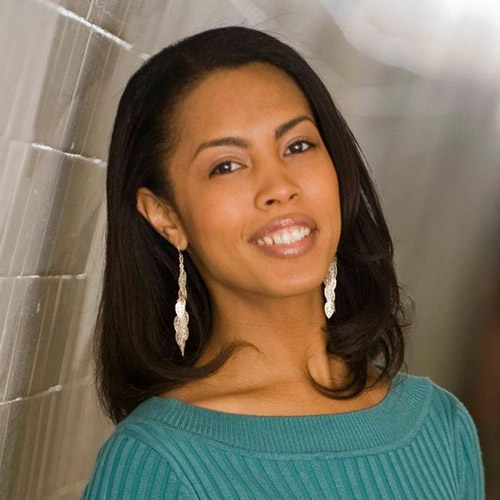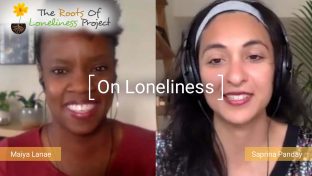Why Black Women Are Often Lonely And 6 Ways To Cope
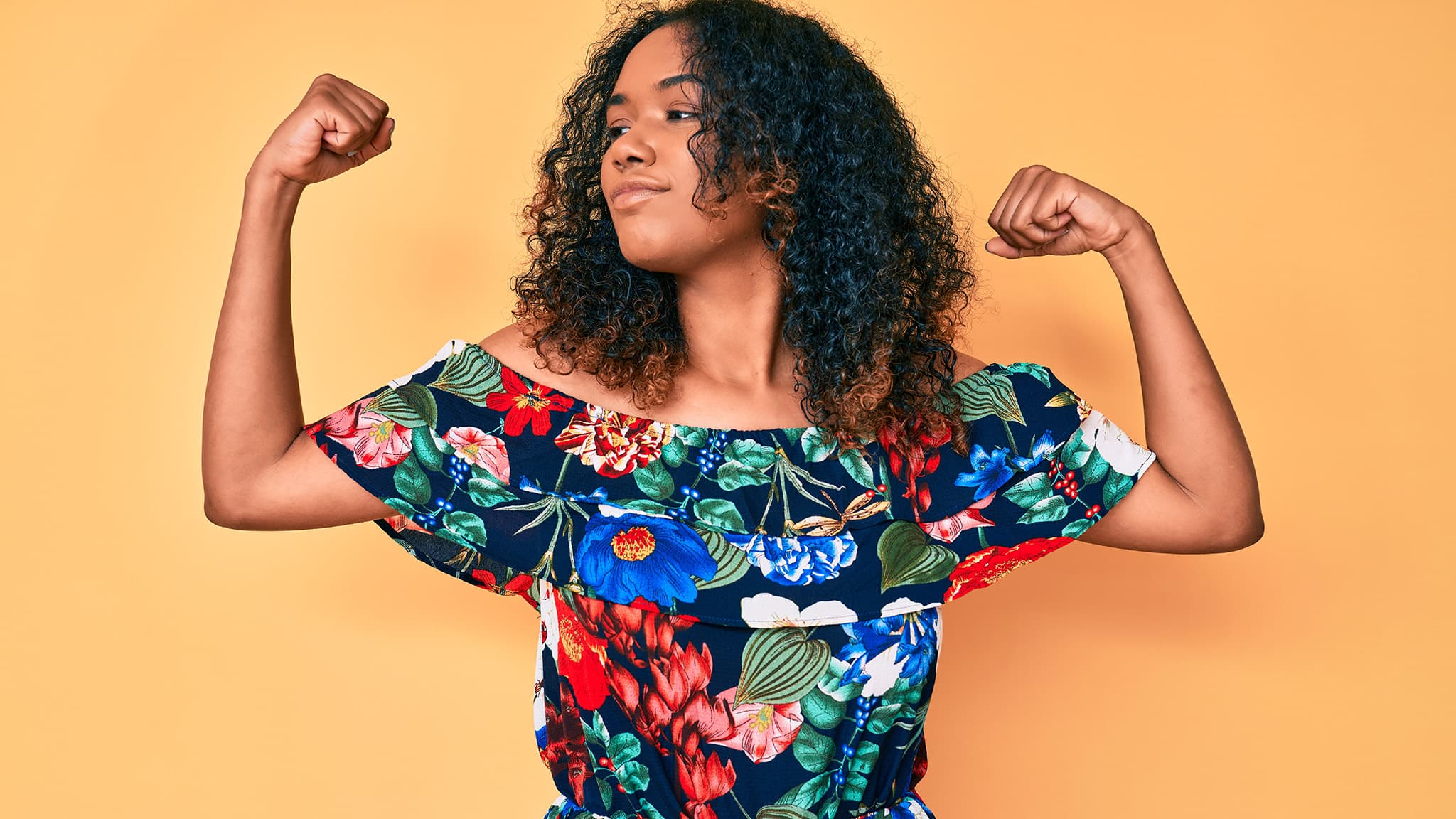
How do you feel when you’re Black but you don’t think you’re Black enough to belong to “your own people” — plus you’re a woman, which is often seen as another strike against you in the world?
I was experiencing what I now know as a form of cultural loneliness, which can occur when a person feels disconnected from their own culture — even while living among it.
- The “Strong Black Woman” schema or “SBW” is empowering, but sets a psychological expectation that to be taken seriously, respected, and to advance in life, she must be stronger, better, smarter, and tougher than everyone else to be even half as good as an average person who isn’t a POC (person of color).
- The Department of Health & Human Services Office of Minority Health found that 11% of Black women feel like “everything is an effort,” compared to just 6.6% of white women.
- Feeling the weight of the world on your shoulders can make it seem impossible to practice self-care or address the very things that are leading to your feelings of loneliness, but it’s important to — and there are several coping mechanisms that can help.
Struggling with loneliness or having a mental health crisis?
- Suicide Prevention Lifeline: 1-800-273-TALK (8255); Deaf or hard of hearing dial 711 before the number or connect via online chat
Like others in my situation, I’ve struggled with loneliness mainly because I never felt like I was “Black enough.”
My father is Black and my mother is Asian, so I grew up with an interesting duality in terms of my identity, as I discussed in this article.
In many ways, I felt like I connected with my Asian roots more easily, which left me standing at a strange crossroads with the Black side of my identity.
It’s lonely.
Why Black Women Experience Loneliness
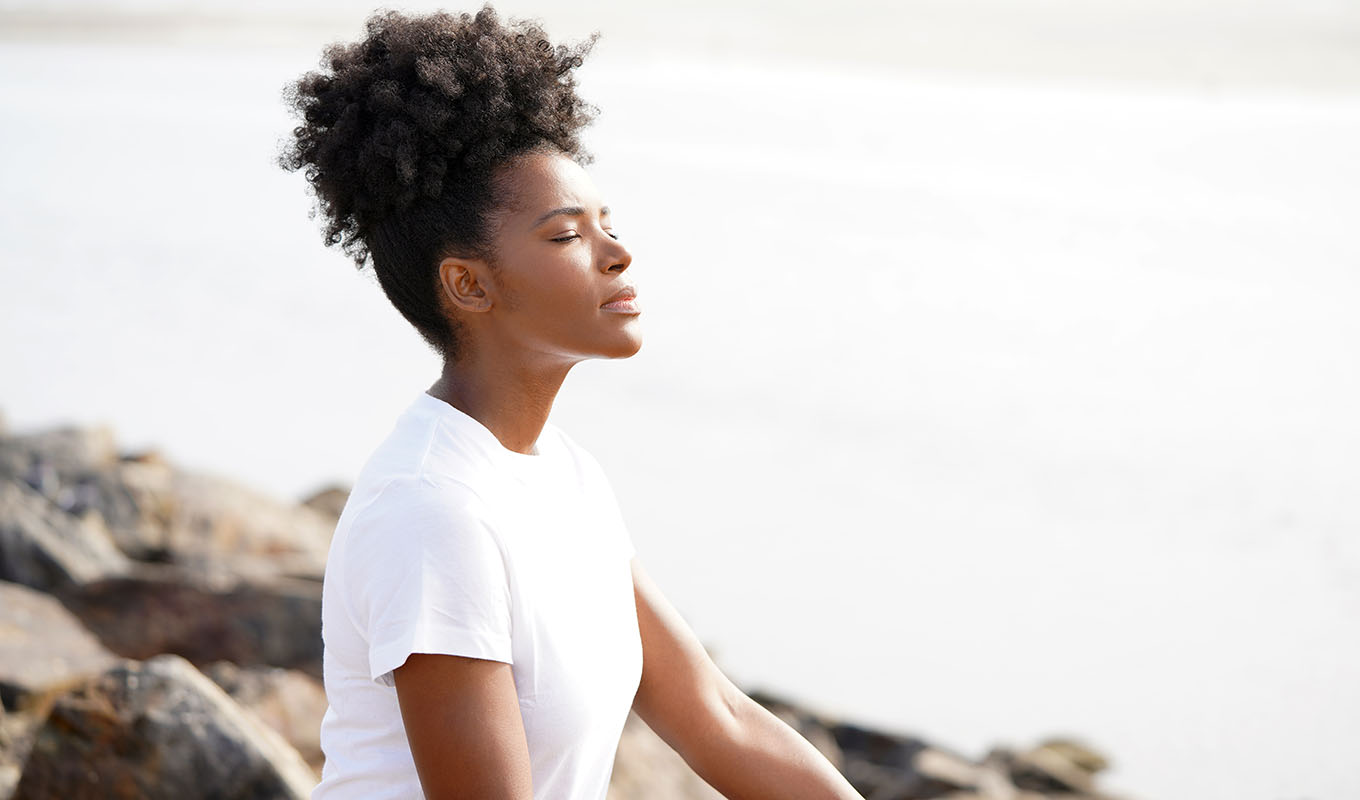
“I am a Queen!”
“I am a strong Black woman!”
“I am independent!”
These are common social refrains shouted from the rooftops when it comes to the strength and perseverance associated with being Black women.
In fact, there’s even a term for this persona, known as the “Strong Black Woman” schema or “SBW.”
It’s an empowering term, but frankly, it’s exhausting to be strong all the time.
If a Black woman is expected to be strong 24/7, when does she have time to be vulnerable? And who can she be vulnerable around?
Is she even allowed to feel these things?
When you consider this, it’s no wonder why Black women suffer disproportionately from loneliness compared to men.
Loneliness in Black women can occur from:
- Being conditioned from birth to be strong and to avoid showing signs of weakness (maybe even being punished/reprimanded for showing vulnerability).
- The pressure from others to value their strength over the need for self-care to preserve their social, economic, and/or professional status.
- Being tasked with responsibilities from an early age (i.e. taking care of siblings/other family members, balancing work and school obligations).
- Feelings of inadequacy, stigma, and/or fear of being perceived as weak or incompetent and losing trust from friends, family, and colleagues as a result.
- Believing there isn’t anyone trustworthy in their lives to be vulnerable around.
When it comes to the notion of Black women being brought up a certain way, University lecturer Maiya Lanae said it best during an interview with The Roots Of Loneliness Project:
“You have to sort of have these survival mechanisms and safety mechanisms in place, almost from birth, because you know that you have to sort of be ready to navigate a world that was not really created for you.”
I remember growing up listening to the “aunties” on the Black side of my family.
They reminisced about how the grandmothers and great-grandmothers never complained, worked hard, and dealt with every kind of abuse and discrimination there was.
But they pushed through and handled business. This was a sign of great strength and it was admired.
Never once did they mention seeing these strong Black women break down, cry, or be vulnerable — ever.
I like to say that my father “taught me to see in color.”
From an early age, he made it a point for me to understand that I was a woman of color and that “my paint job” would be the first thing anyone would see — not my intelligence, college education, or level of experience and skill.
This embedded in me a psychological expectation that to be taken seriously, respected, and to advance in life, I had to be stronger, better, smarter, and tougher than everyone else to be even half as good as an average person who wasn’t a POC (person of color).
Needless to say, that’s a lot of pressure and it doesn’t leave much room for feeling lonely and vulnerable.
Add to that the responsibilities of being a “tiny grown-up,” taking care of my mother while my father was away overseas for months on end, and I grew into a codependent overachiever who automatically took care of everyone and anyone who needed me.
The only person I left out of that equation was myself.
My father didn’t believe in therapy. Well, he did…but contributed to the stigma that only “crazy” people went to therapy.
When I disclosed to him that I was seeking this mental health service in my late 20s, he incredulously asked, “Why the hell do you need therapy? What issues do you have?”
As it turns out, I had a LOT.
Ironically, my father was the prime candidate for therapy but because of his identity as a strong Black man, the last thing he would ever admit to was needing help, professional or otherwise.
In terms of the loneliness I felt, that started when I was a teenager in middle school. Kids say the darndest things, including pointing out all the things that make you different.
Swim classes were the worst. Unlike other Black girls, I could get my hair wet.
Seeing me with my wavy, poofy wet hair made the Black girls wearing swim caps talk in loud whispers about how I thought I was better than them because I had that “good hair.”
During freshman year of high school, I had a Black girl walk right up to me and say, “You don’t look all that special, just a n***ah with good hair and a small nose.”
While I had Black female friends, true friends were few and far between.
Eventually, I got tired of trying to fit in with that particular group and became a social butterfly with a circle of friends who looked like the United Nations.
But that didn’t mean I didn’t feel lonely.
How could I not be? Being proud to be a Black woman is great but it’s not as effective when you can’t celebrate with other Black women.
While my best friends were wonderfully supportive of me, they weren’t Black — I couldn’t talk to them about instances of racism, “otherness,” or the social nuances only noticed by those of us who “see in color.”
So I kept it to myself, as do so many Black women out there.
Loneliness, particularly for women, tends to be housed under the umbrella of depression.
The U.S. Department of Health & Human Services Office of Minority Health found that 11% of Black women say they feel like “everything is an effort,” compared to just 6.6% of white women.
Carrying the weight of the world on your shoulders full-time makes it almost impossible to practice self-care and address the very things that are leading to your feelings of loneliness and despair.
The concept of Black women’s loneliness has gone unchecked for generations.
Stemming from family history and societal expectations of what it means to be a “strong Black woman,” many people could be experiencing cultural loneliness due to feelings of isolation and the idea that there isn’t anyone they can trust to be vulnerable with who would understand their unique circumstances — even within their own communities.
6 Powerful Ways To Deal With Loneliness As A Black Woman
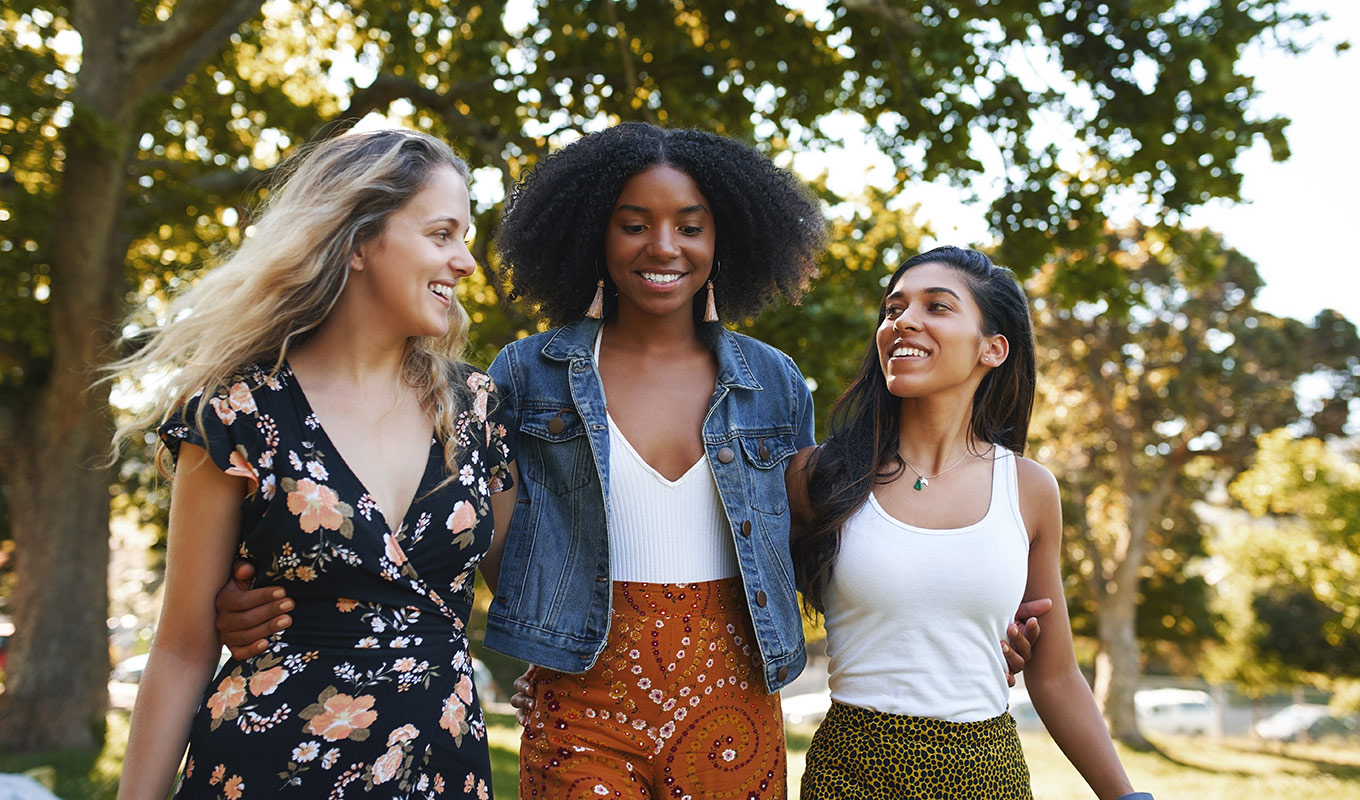
While the struggle is certainly real for lonely Black women, there are ways to combat these feelings and address what might be deep-rooted issues within ourselves.
For me, it was a long time coming but finding a therapist who specialized in trauma, PTSD, anxiety, depression, and loneliness put me on the path toward realizing what I needed to do for myself to ensure my well-being.
While everyone’s path will be different, some actions may help you to alleviate your loneliness.
1. Take a personal inventory:
Write down the things that make you happy and the things you believe contribute to your feelings of loneliness. Try to identify if there is a theme that connects the two. You might surprise yourself.
Taking a personal inventory is what helped me to realize that I was a codependent empath, conditioned to take care of others while neglecting my own mental and physical health to the point where I found myself in toxic relationships.
I would isolate myself and suffer from loneliness because I didn’t want others to know I was in pain. The last thing I wanted to be was a burden for people I felt had it worse off than me.
But I didn’t know this to be true of myself until I took the time to consider what made me happy — and what was making me feel lonely.
2. Be your strongest advocate:
Standing up for yourself and understanding how to articulate your wants and needs isn’t selfish. It’s empowering.
Loneliness tends to make us feel small and it makes us want to hide.
The confidence found through standing up for yourself and realizing that you don’t have to be a prisoner to the things that are causing your loneliness is the type of strength that can only make you — not break you.
And the thing is, in most situations, no one else is going to do this for you.
3. Choose your tribe wisely:
It can be challenging to cut off toxic people and energy but once those ties are severed, the newfound independence and freedom are hugely rewarding.
Think about the sources of where those toxic people, behaviors, or beliefs came from and look elsewhere to foster genuine, positive connections with others.
Because we’re finally starting to have broader discussions around issues like cultural loneliness and other related forms of loneliness for Black women, there are more online communities and resources focused on serving those individuals.
The Black Women’s Health Imperative is an example of a great organization whose mission is dedicated to providing resources to help Black women live healthy and optimal lives physically, emotionally, and financially.
4. Help others while you help yourself:
Pick a cause or organization that matters to you and volunteer your time to help those who need it most.
Taking action to bring about positive change and participating in something bigger than yourself is a wonderful approach to opening up your world and changing your surroundings in a way that will naturally introduce you to new people who have similar values and interests.
As I mentioned above, The Black Women’s Health Imperative is an organization that seeks to positively impact the health and wellness of Black women — and getting involved is just a click away.
5. Break the stigma associated with mental health care:
I talked about my father’s reaction when I told him I was going to therapy. It was one of disbelief.
Historically, Black women are taught to push through adversity using sheer strength of will — and admirably, they so often do. But sometimes that isn’t enough.
The truth is that therapy can be beneficial for a lot of people — and it’s worth breaking the stigma and getting the help you need.
In many cultures, seeking mental health care is a sign of weakness at best and a sign of failure at worst.
Whatever unspoken rules or guidelines you’ve always followed have, at some point, likely contributed to where you are with your loneliness currently.
Break those chains and get comfortable with being uncomfortable — therapy can help.
When seeking out a therapist, make sure to choose one with experience in loneliness and other related conditions as they apply to you.
By seeking someone who specializes in this category, they’ll automatically be able to speak your language and understand the territory you’re navigating right now.
6. Demolish the stereotype and get back to nature:
Even if you like the great outdoors, the depths of your loneliness may have prevented you from connecting with nature for a while.
Or if you’ve never felt the need to go out and hike or camp, the notion of doing so to combat your loneliness might seem outright absurd.
Black women aren’t commonly associated with outdoorsy things like hiking, camping, biking, and other wilderness-related activities but there’s no time like the present to change that stereotype.
Reconnecting to the beauty of nature is an effective way to ground yourself in the present and understand your place in the world.
Even just kicking off your shoes and curling your toes in the grass can be a revitalizing experience you never knew you needed.
Not confident enough to jump into nature by yourself? Join a local group that focuses on getting people out and about.
Going on excursions in a group setting will enable you to experience something you wouldn’t have otherwise while presenting an opportunity to meet new people who may just become vital members of your tribe.
Standing up for yourself, refusing to allow loneliness to dominate your life, and taking action by severing toxic relationships and establishing new connections by doing things you enjoy can be scary at first but entirely worth the new experiences and opportunities waiting for you on the other side of loneliness.
Closing Thoughts
Putting in the work to define what happiness and belonging mean to you will put you on a path towards acceptance and forgiveness, and help you to create the types of connections with others that will keep feelings of loneliness at bay.
When you know what you want out of life and aren’t afraid to go after it, that confidence, self-love, and discovery will naturally attract the right tribe — one that will see your worth and view you as a strong woman who recognizes that vulnerability isn’t a sign of weakness.
It’s a sign of strength — and what it means to be human.
Every Black woman deserves to know that feeling.
Editor’s Note: This article is part of The Roots Of Loneliness Project, the first-of-its-kind resource that comprehensively explores the phenomenon of loneliness and over 100 types we might experience during our lives.
Find Help Now
If you’re struggling with loneliness as a black woman, we’ve put together resources to meet you wherever you are — whether you want someone to talk to right now, or are looking for longer-term ways to help ease your loneliness.
- Suicide Prevention Lifeline: 1-800-273-TALK (8255); Deaf or hard of hearing dial 711 before the number or connect via online chat
- Resources & Emotional Support For Loneliness
- Volunteer & Pet Adoption Opportunities

